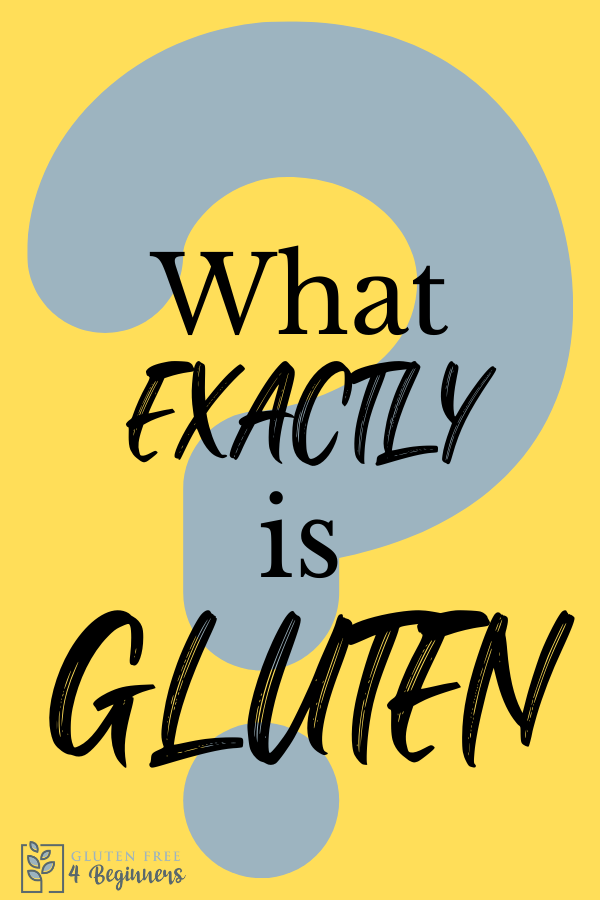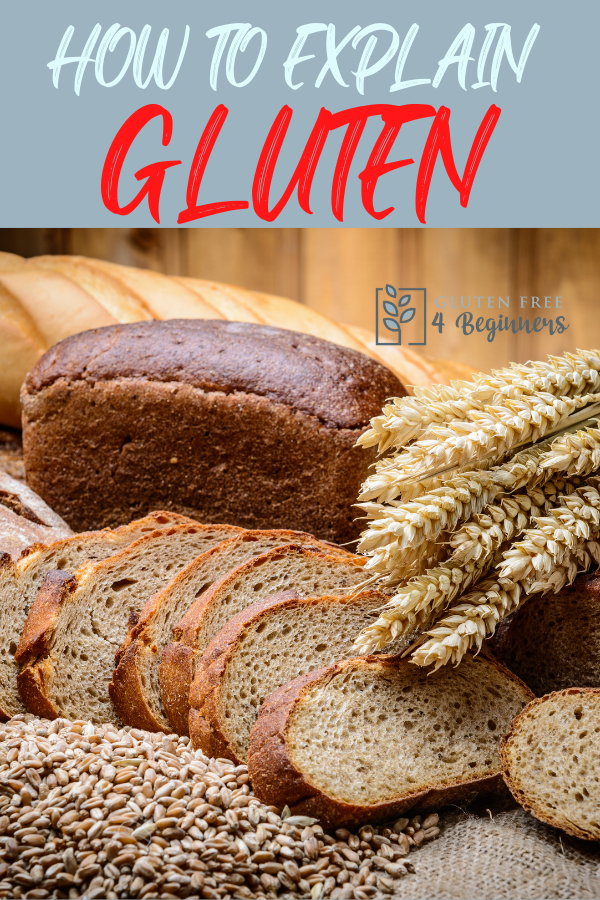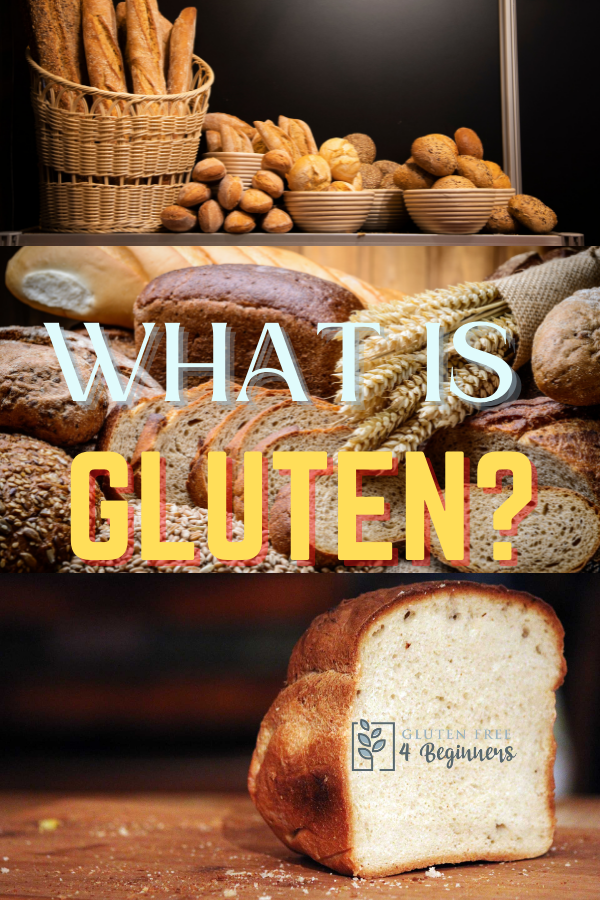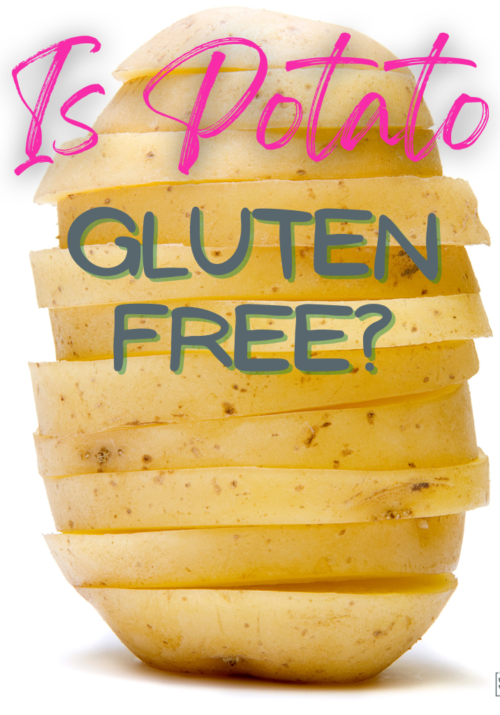The simple definition of what exactly is gluten you must read!
Medical practitioners are great at providing you a deep scientific medical explanation of what gluten is, but you and I are not medical personnel and need an answer to that question in plain language. What exactly is gluten is a question that I have been asked over and over again through the last 10 years of eating a gluten free diet. Gluten free is more than the latest trendy diet crazy. It is essential for the health and well being of those with Celiac disease.
We have created this guide to answer the ‘What exactly is gluten?’ question in easy to understand plain language to help you as you begin to eat gluten free. We hope that this will help you answer that question the next time you are asked.

What exactly is gluten? In plain language.
Gluten is a protein that is contained in specific grains. That’s it, seriously it is that simple!
Okay, so now what, how do you know exactly what grains contain this protein called gluten?
The short and simple list is wheat, barley and rye. Yes, yet again, so simple.
There are a couple of other grains to watch out for like Triticale with is a cross between barley and wheat.
Are oats gluten free?
There is a ton of confusion around oats being gluten free. Oats do not contain the gluten protein. However, oats are often processed in the same facility as the other grains that do contain gluten. When oats are processed in the same equipment as gluten containing grains cross contamination occurs and the oats can no longer be consider gluten free as small particles from other grains get mixed with the oats. Oats processed in a clean facility are free from cross contamination and therefore gluten free. Only Oats is our go to for oats that have been processed in a dedicated facility.
Now what? I get the definition but why do we care?

The gluten protein can cause major issues for those people who have celiac disease, gluten sensitivity or gluten intolerance.
Celiac disease occurs when a person’s body begins to attack the small intestine when gluten is present, it is an autoimmune disease that can cause severe illness and complications.
Gluten sensitivity and gluten intolerance can occur in people who don’t have celiac disease. When gluten sensitivity or intolerance shows up, a person really struggles with digesting gluten. This can cause bloating, brain fog, lethargy and a host of other symptoms.
While gluten intolerance or sensitivity is not defined as a disease like celiac disease is, individuals usually feel much better and have a number of their symptoms improve once they eliminate gluten from their diet. In these cases, typically removing gluten is the best way to determine if it is causing issues. Some people then add it back to see if the symptoms/issues return after a period of at least two weeks without. For many people, they only need to experiment with this once to know that gluten bothers them.

The tricky part
So if gluten is just in a few grains you might think that it is easy to recognize and avoid. The trick is all the things that are made from wheat and barley. Flour is probably the most common ingredient to be made from wheat which unfortunately is in many different products. Staying away from baked goods is a good place to start but gluten also hides in unexpected places. We have found sauces to be the secret hiding place of gluten many times, barley malt is a common flavoring, and wheat starch or flour is often used as a thickening agent. The one that surprised me the most when beginning to eat gluten free was soya sauce, many but not all brands use fermented wheat in the production, here is our favorite gluten free soya sauce.
Next steps
If you think you have issues with digesting gluten and are concerned it might be celiac. The first place to start is your doctor. They can do a blood test to determine if you have an antibody that indicates celiac disease. It is best to see the doctor while you are still eating gluten as the antibody doesn’t show up in people who have been on a gluten free diet for some time.
If you test comes back as negative and you still don’t feel great and suspect gluten intolerance or sensitivity, try going gluten free for two weeks. It will definitely give you a sense if gluten is an issue for you!
5 gluten free for dummies tips is a great list to help you spot gluten and keep it out of your diet.
We hope that this post has helped you to understand what exactly is gluten in a simple and informative fashion.



Leave a Reply